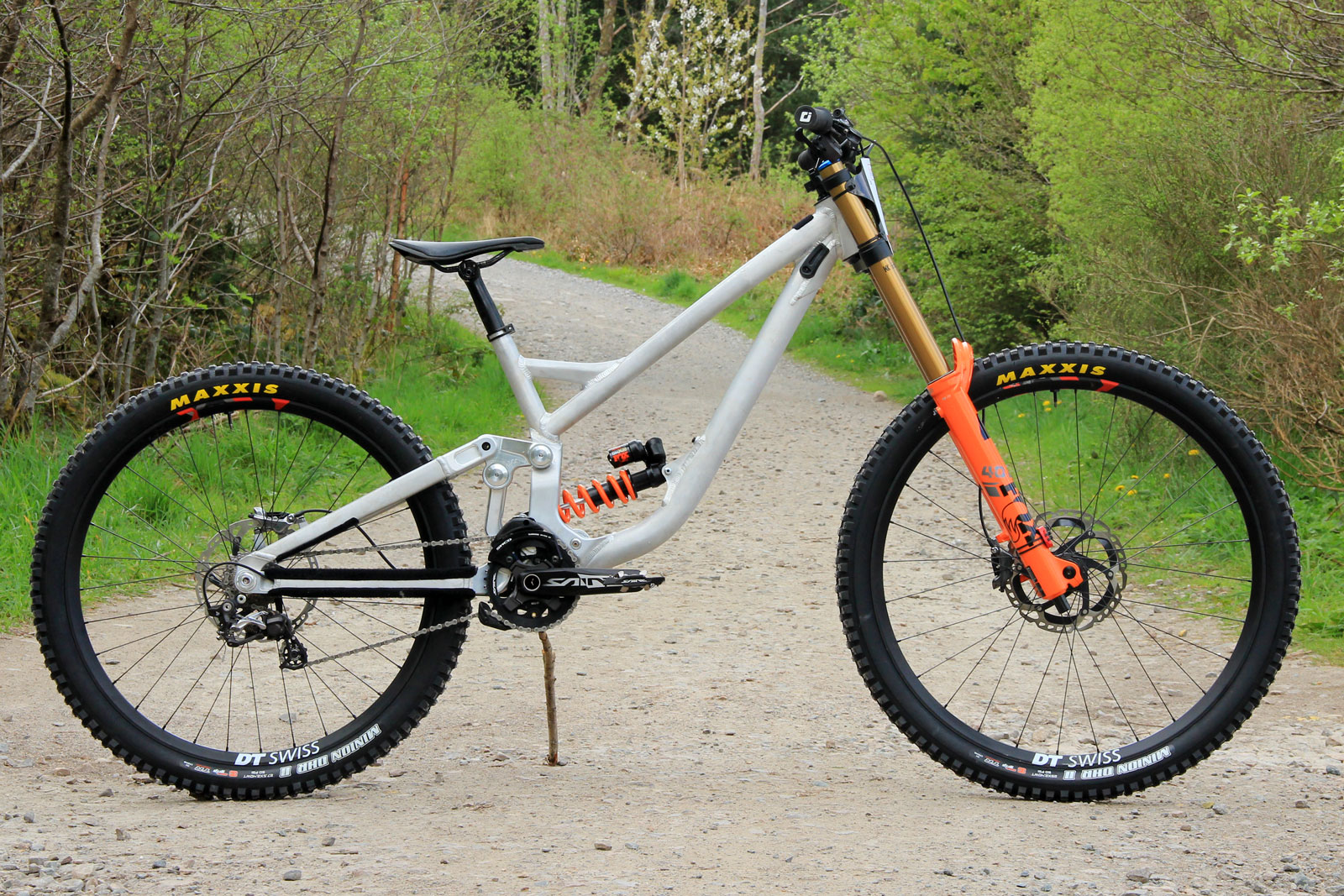Matt Walker and Greg Williamson of the Madison Saracen Factory Team have been piloting a new downhill bike since January, a frame that is now into its second phase of prototyping. The latest Saracen Myst prototype was raced by the aforementioned at last weekend’s Fort William episode of the British Downhill Series.

Matt Walker demonstrated that he remains a continued threat, placing 2nd behind Santa Cruz Syndicate’s Laurie Greenland, but ahead of the likes of Amaury Pierron, Charlie Hatton, Troy Brosnan and Loris Vergier. Indeed, some of the World’s top downhill riders made the trip to Aonach Mòr, ahead of the World Championships this coming August.
Team mate Greg Williamson had an unfortunate wash-out on some loose rocks before entering the woods section putting the reigning British Champion back in 25th overall. Looking more closely at the results, 3rd place on the final split showed that he too is able to carry some serious pace aboard the new bike.
We headed over to the Madison Saracen Factory Race Team pits for a chat with Matt Walker’s mechanic, Ewan Collier, who kindly gave us a run down of Matt’s race day set up, and a back story on the development of the new bike.
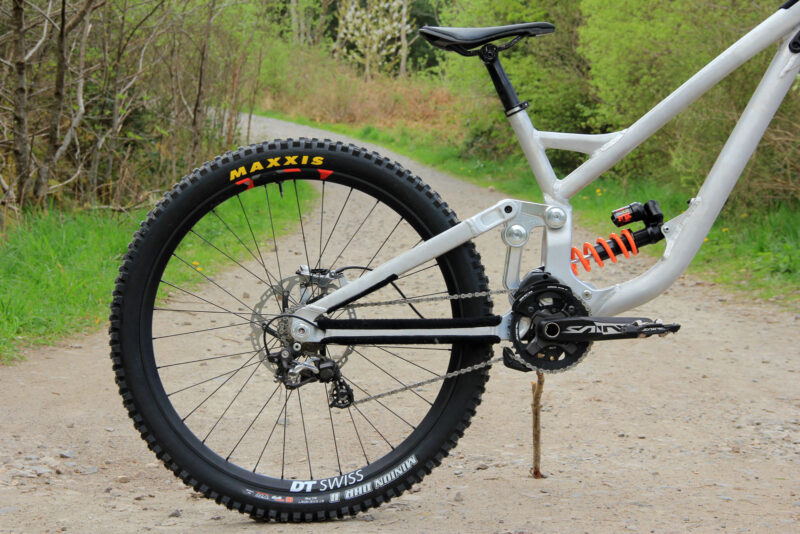
Saracen Myst Prototype Downhill Bike
For the last two years, the Madison Saracen Factory Race Team has been running the production Saracen Myst with a floating brake arm in a bid to isolate suspension movement from rear braking forces.
By housing the brake caliper on a floating arm that is mounted to the bottom bracket, rather than on the swingarm, braking forces are directed into the front triangle instead of the rear; as a result, the swingarm is free to move in response to the terrain and the rider’s cycles of weighting and un-weighting, regardless of whether or not the rear brake is being applied.
Testing of the floating brake arm setup has fed directly into the development of a new linkage design. The team experimented with multiple pivot points and leverage angles on the brake arm in order to find what they felt was the sweet spot. It was a low cost way to ascertain what they wanted to achieve with the next generation Myst, before investing in expensive prototypes.
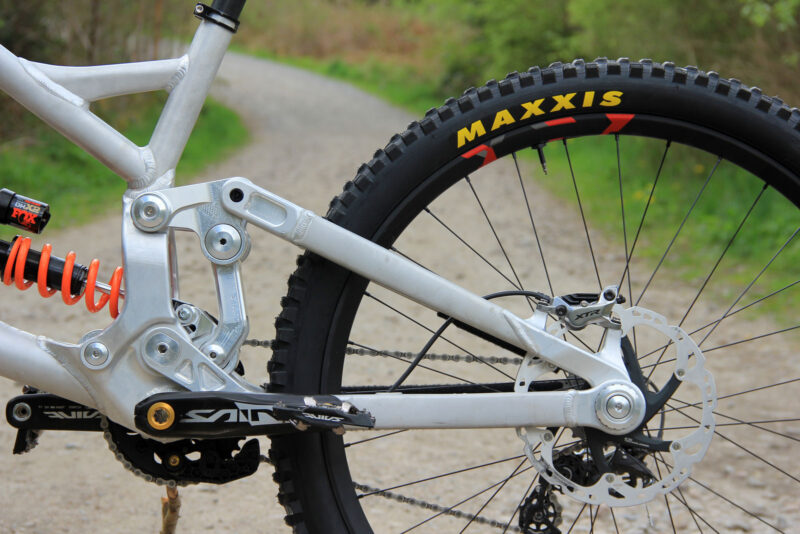
The new frame that Matt Walker and Greg Williamson raced at Fort William last weekend is an amalgamation of that process. The frame you see here is very close to what will go to production.
Where the production Myst delivers its 200mm of rear wheel travel via a single-pivot push-link arrangement, the new frame utilizes a six-bar linkage. The shock is positioned through a partition in the seat tube, and is driven by a link nested below it.
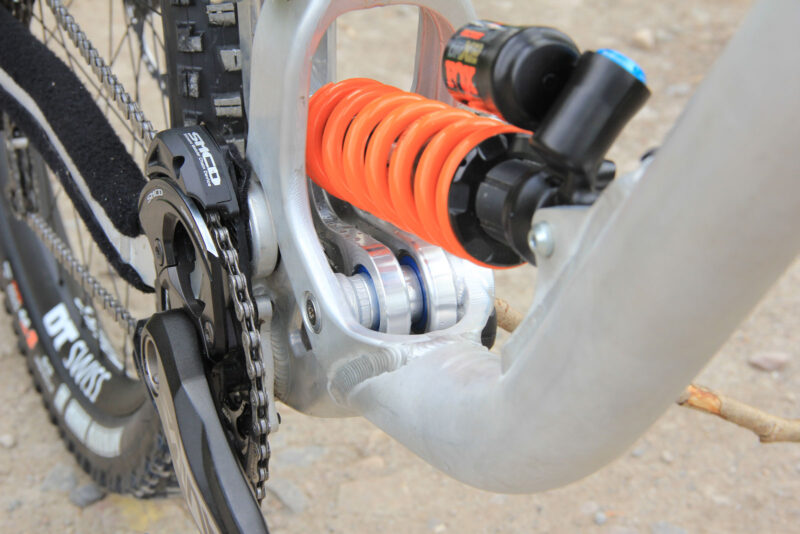
Without removing the coil and pushing the bike through its travel, it’s not so easy to understand how each of the links articulate. But, based on a good look at it, here’s our interpretation: As the rear wheel encounters a bump, displacement of the seat stay forces the upper link to rotate clockwise (as viewed from the drive side). As it does so, it pulls on the central strut-like frame member.
This pull translates to a pull on the lower link, which itself rotates clockwise about its front triangle housed pivot, driving the rear shock. Though the rear axle tracks rearward initially, it subsequently arcs forward, reducing the effective rear-center length as the bike is pushed through its travel.
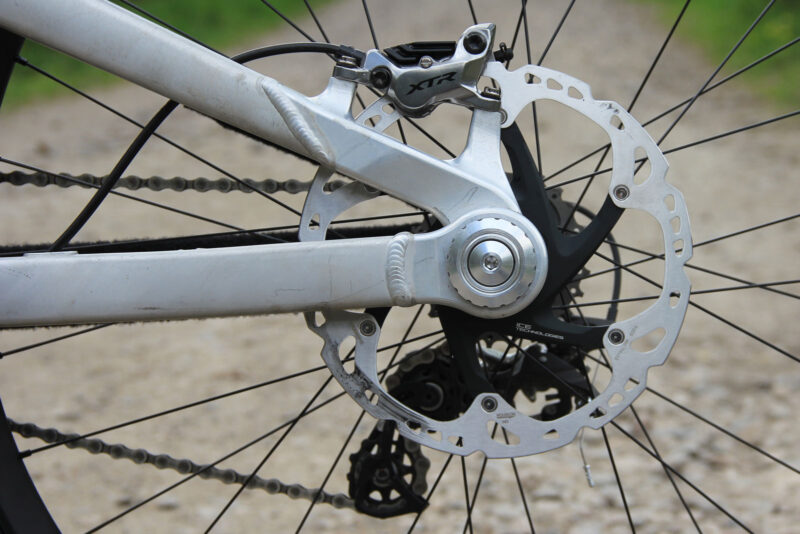
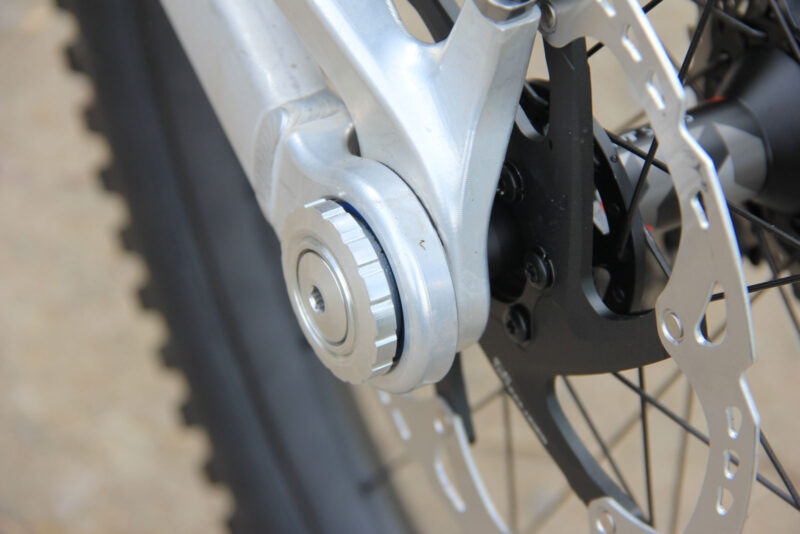
A key element of the Myst prototype’s suspension design is the articulated rear end, wherein the chain stay and seat stay meet at a pivot concentric to the rear axle, with the brake caliper mounted to the seat stay. This is put in place to isolate the suspension from rear brake-induced braking forces. As a result, the prototype Myst has no need for a floating brake arm.
Indeed, numerous other brands utilize this layout for the very same reason; notable examples include Trek’s ABP (Active Braking Pivot), and Salsa Cycle’s Split Pivot.
“Most of the tracks we’re riding on the World Cup, we’re actually trying to get rid of the speed. They’re doing 40 mph, so we’re prioritizing braking efficiency. We don’t want to reduce the efficiency that our bike has [under pedalling] but we need added braking efficiency”.
Mechanic, Ewan Collier.
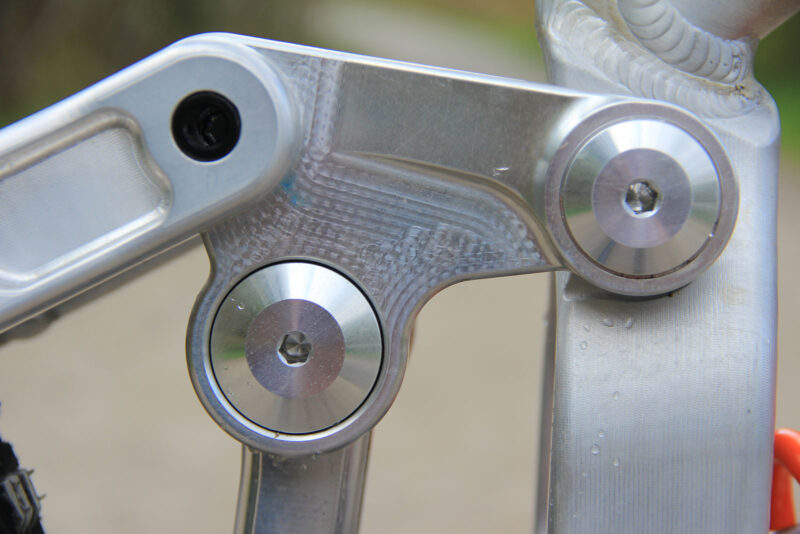
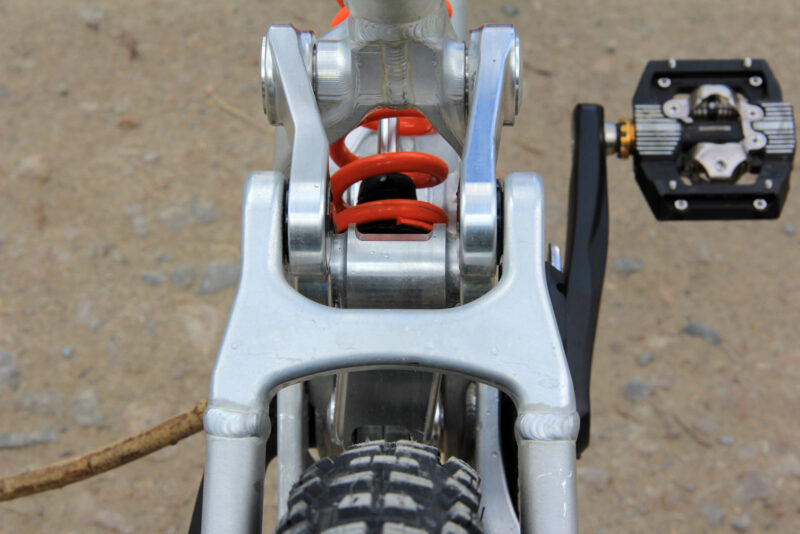
This second prototype that was raced last weekend is very much the same as the original prototype that was raced at Lourdes. The only real difference is that this one pictured throughout features machined links that are a fair bit lighter.
Ewan Collier tells us the intention for the next generation Saracen Myst is to be a full aluminum affair; that’s in contrast to the current production bike that runs an aluminum front triangle paired with a carbon swing arm. However, like the current offering, the new Myst will also be a dedicated mixed-wheel bike with a 29″ front wheel and a 27.5″ rear.
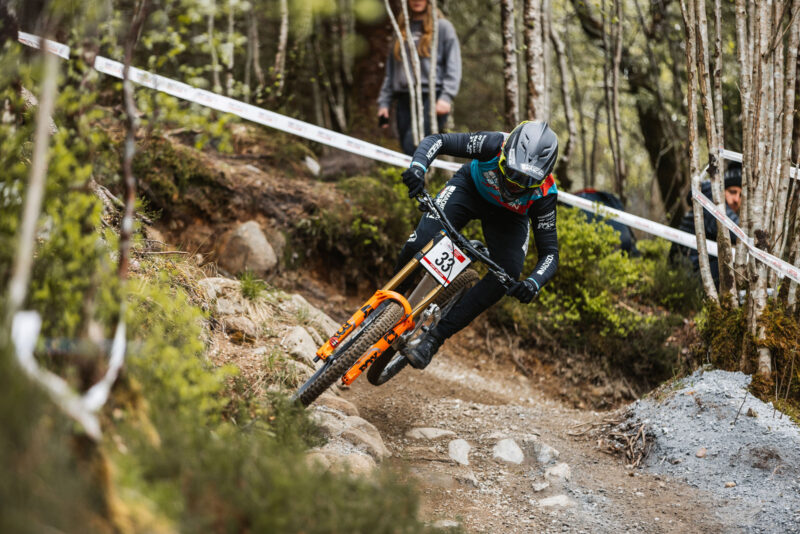
Pro Bike Check: Matt Walker’s Prototype Saracen Myst
Geometry wise, the new Saracen Myst is to be very similar to the production Myst. It was important to Matt that the new bike feel familiar to him, and so his prototype race bike has a 480mm reach, the same as the current bike in a size medium. That said, the 56mm head tube does allow for use of a +/- 5mm reach adjusting headset.
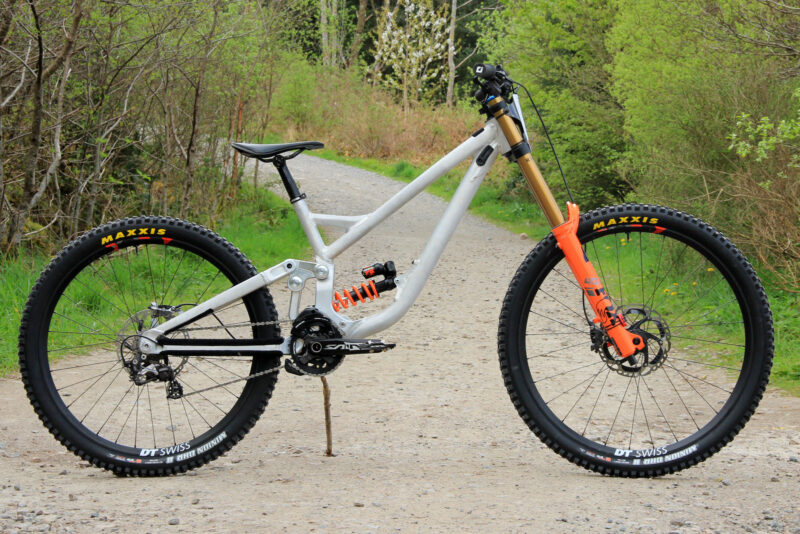
While the chainstay length on the current bike is adjustable over a 445mm to 460mm range, the prototype Myst – featuring a pivot concentric to the rear axle – lacks a flip-chip permitting such an adjustment. Saracen have gone for a chainstay length that is fixed somewhere in the middle of that range.
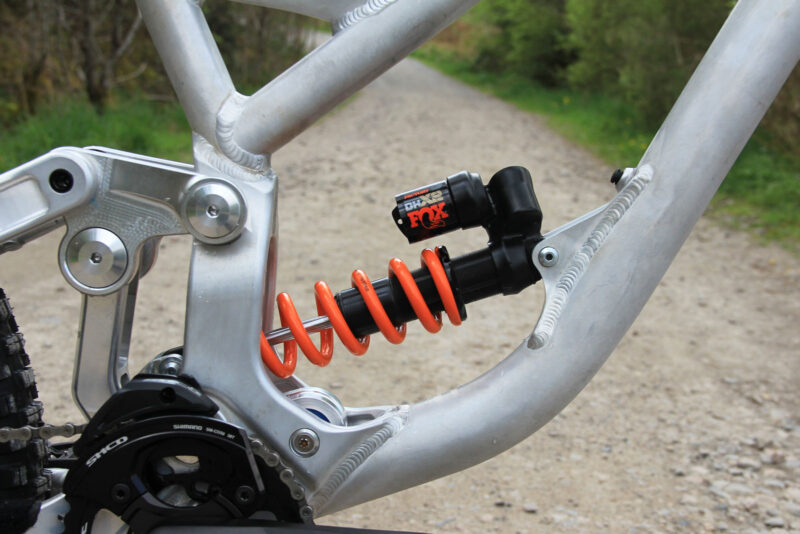
In the Fox 40 Factory Fork, Matt is running 88 PSI with 5 volume spacers. On the Fox DH X2 Coil Shock, Matt runs a 525 lb/in spring. The dampers are custom-tuned, so any discussion of HSC, LSC, HSR and LSR settings would be relatively uninformative at this stage.
The Madison Saracen Factory Race Team made use of the BYB Telemetry system during practice on Saturday. The downtube has a wee port just fore of the shock mount for an option to run its cables internally.
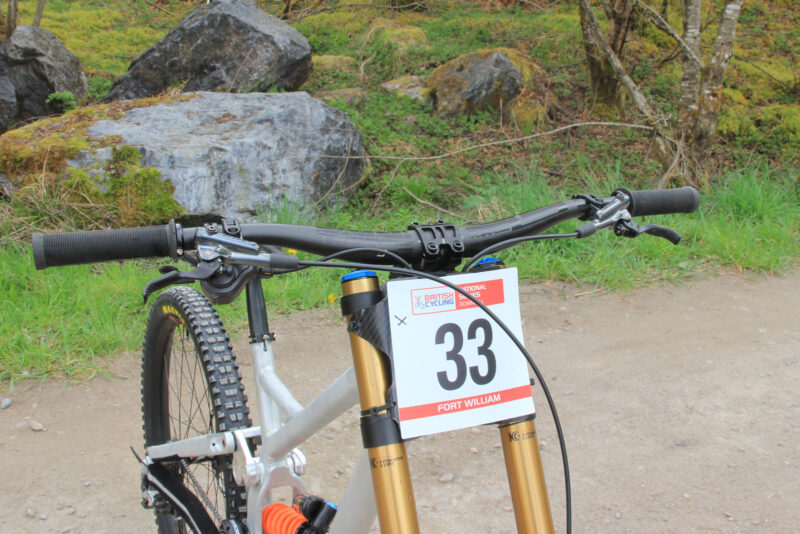
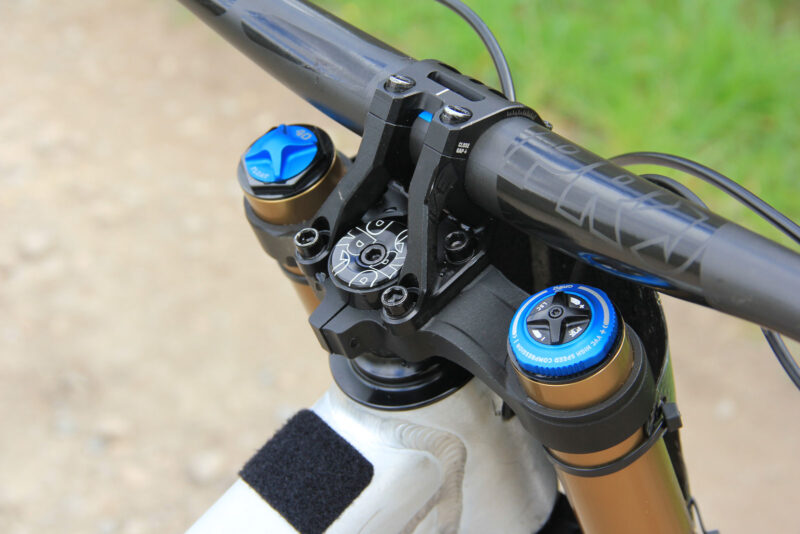
In the cockpit, Matt runs a Pro Tharsis 3Five Carbon Riser (30mm) bar cut to 780mm. The Pro stem is adjustable between a 45mm and 50mm reach; Matt opts for the longer 50mm position.
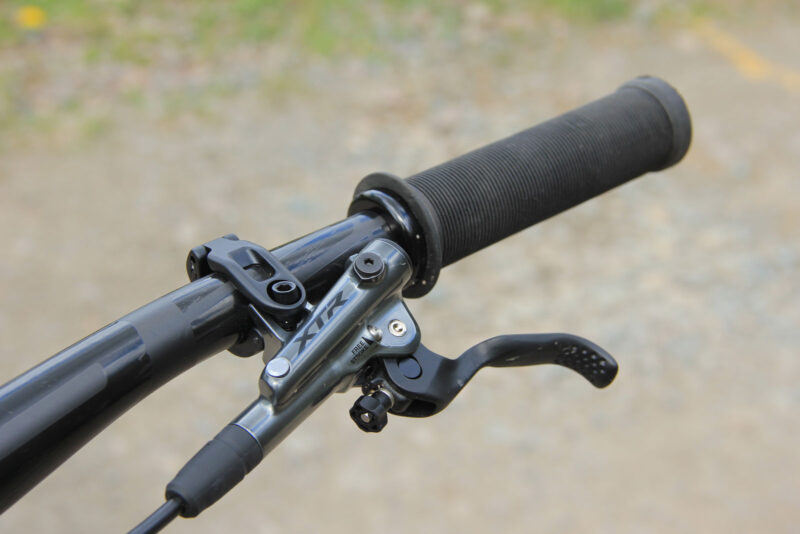
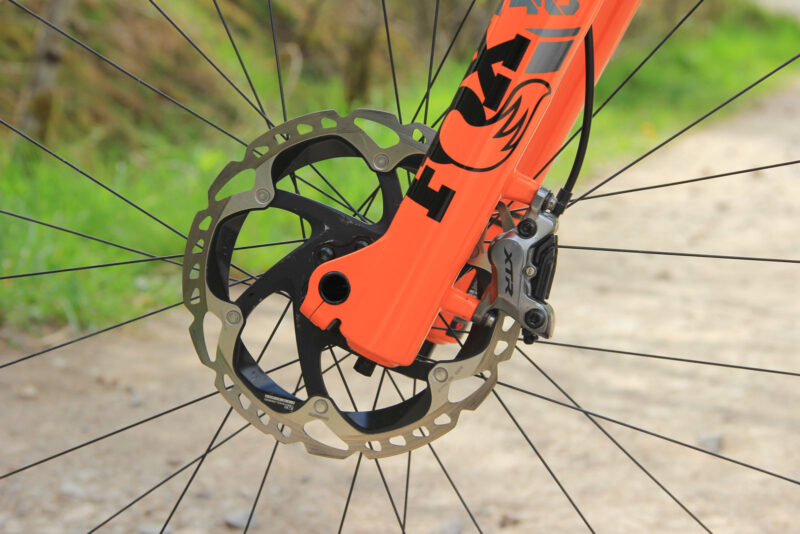
Interestingly, Matt was running Shimano XTR 4-Piston brakes instead of Saint brakes, which are considered Shimano’s top-level offering for downhill riding. He ran a 203mm rotor on the front and rear.
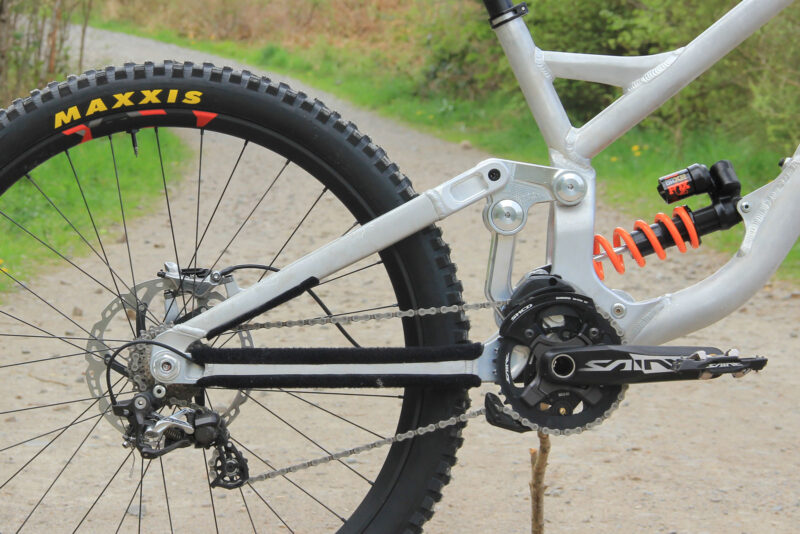
Pedaling efforts are translated to the rear wheel via a Shimano Saint Drivetrain with a 38T chainring and 165mm cranks. A Shimano Modular Chain Device was in place to take care of chain retention. The prototype frame lacks rubberized chain slap protection, but mechanic Ewan installed some velcro-like strips on the drive side stays in a bid to keep Matt’s ride rolling quietly.
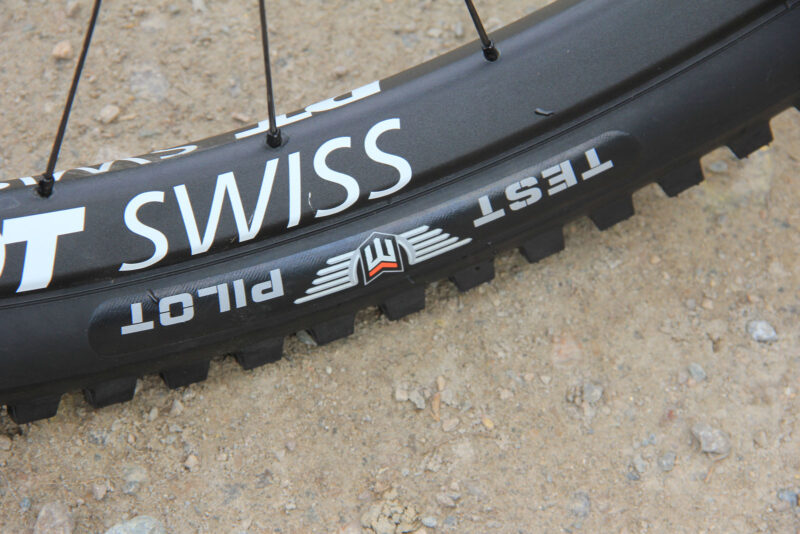
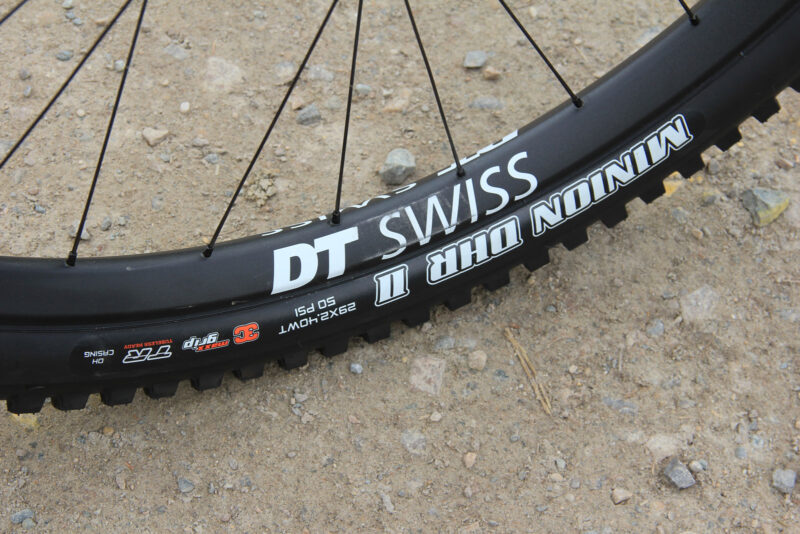
For his Fort William race run, Matt opted for a fast-rolling set up; a pair of Maxxis Minion DHR II tires, both of the Maxx Grip DH Casing variation. These were seated onto some unidentifiable aluminum rims from DT Swiss, the key graphics of which were taped over; the 29″ x 2.4″ front tire was inflated to 24 PSI, and the 27.5″ x 2.4″ rear tire was inflated to 27 PSI.
Despite the threat posed by the pin-ball rock garden sections – that, incidentally, claimed Loic Bruni’s rear tire last weekend – Matt Walker was happy to roll without the rim protection offered by tire inserts.
